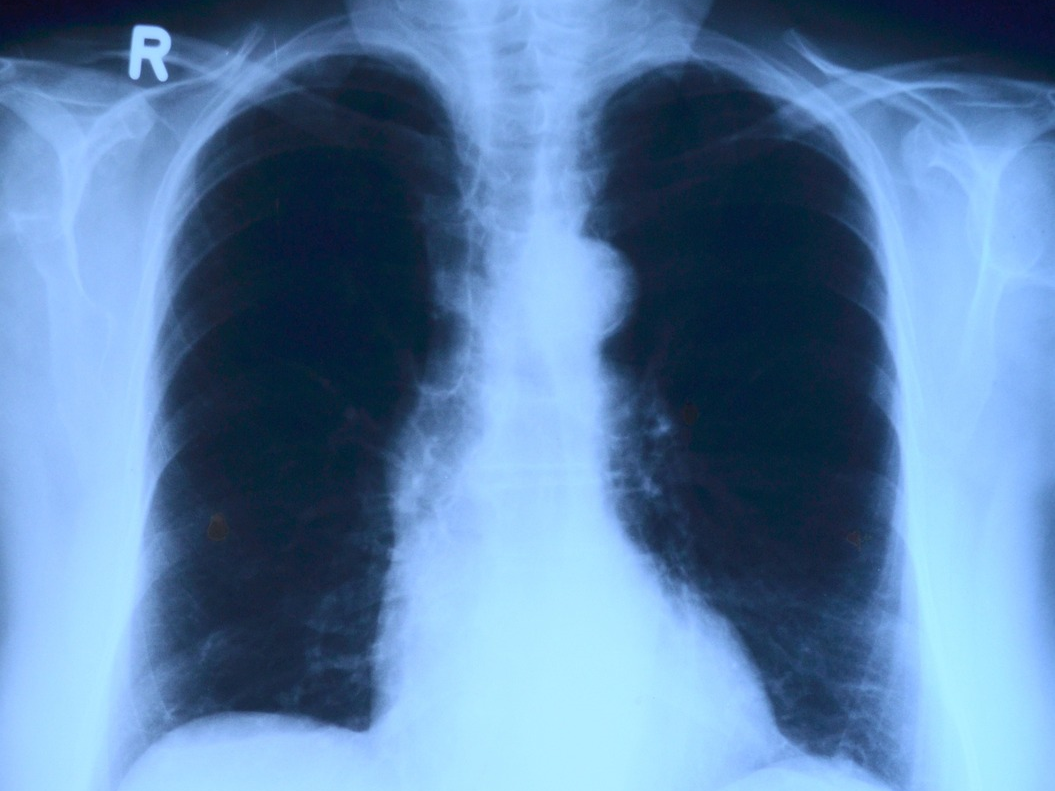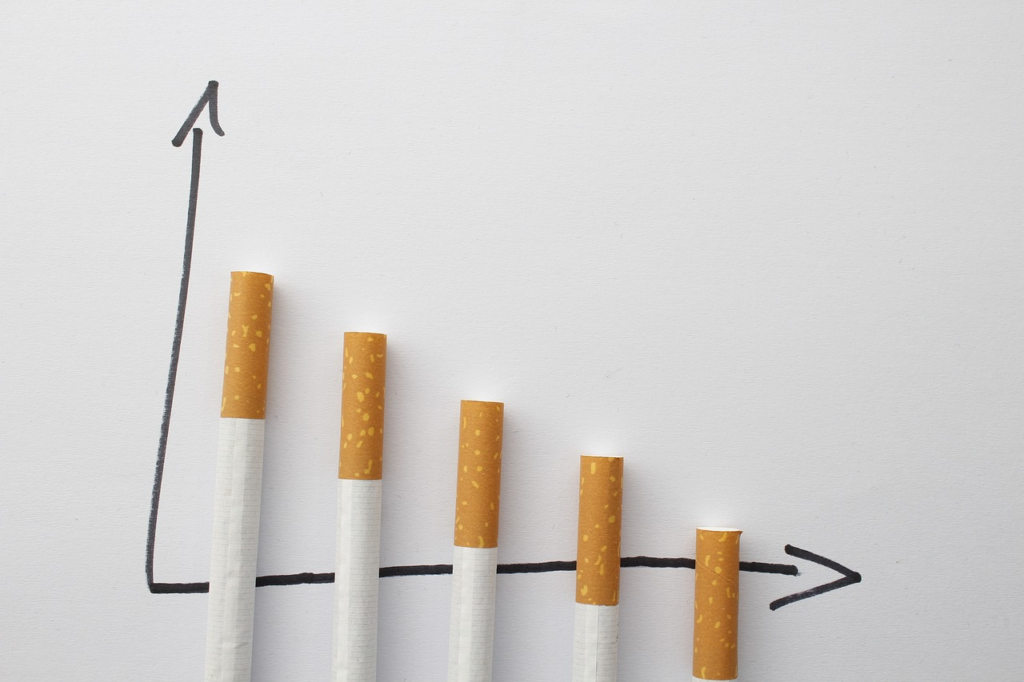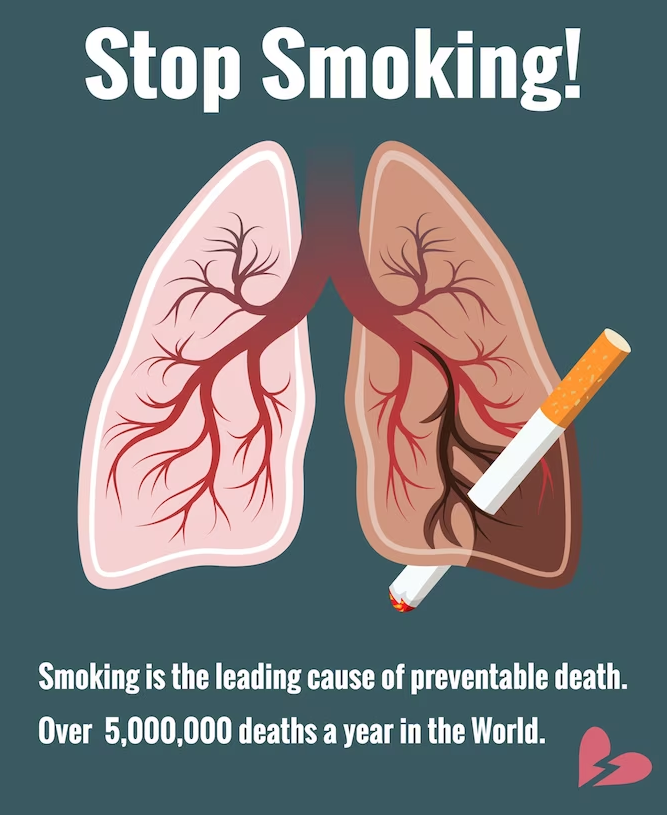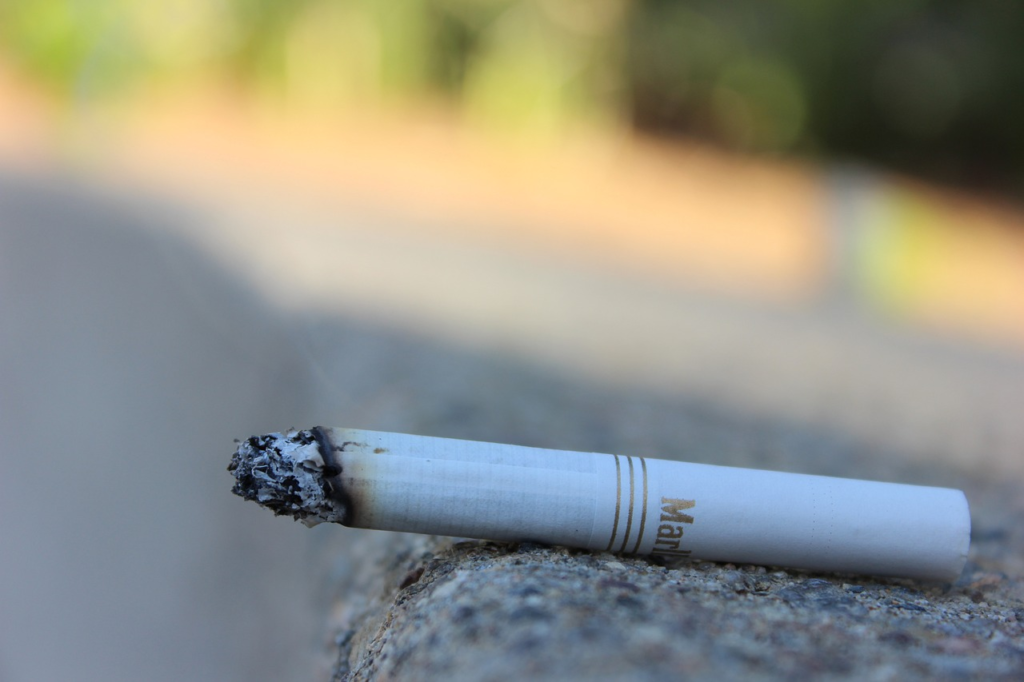In our pursuit to achieve a healthier life, It becomes crucial to understand the subtle aspects of lung health and lung diseases associated with smoking. Our lungs play a very important role in our overall healthiness, but the impact of our life choices, particularly smoking cigarettes or vapes, can inflict serious damage on our lungs. In this artcile we aim to know all important things about smoking and its effects on our lung health and compare the difference between healthy lungs vs smokers lungs Join smokercare as we explore the differences, effects, and steps you can take to safeguard your lung health.

Table of Contents
Healthy Lungs – The Foundation of Wellness
DIscussing about Healthy Lungs vs Smokers Lungs, we need to know that having healthy lungs is necessary to having a solid foundation for our overall health These remarkable organs present in our body facilitate the exchange of oxygen and carbon dioxide, fueling every cell in your body. Lungs at their prime function optimally, enable you to lead an active, vibrant life. But what defines the difference between Healthy Lungs vs Smokers Lungs? Lets dive deep into the topic to understand the difference.
The Marvelous Machinery of Healthy Lungs
Healthy lungs are a marvel of intricate design and impeccable prime function. With each breath, air travels through the bronchial tubes and into the alveoli, where oxygen is diffused into the bloodstream and carbon dioxide is removed. These alveoli expand and contract effortlessly, ensuring efficient oxygenation. A network of tiny blood vessels called capillaries envelops the alveoli, allowing oxygen to bind to red blood cells and be transported throughout your body.
The Effects of Smoking on Lungs
In contrast, the effects of smoking can cause fatal damage to our lungs. The harmful substances in tobacco’s smoke leads to inflammation and damage to the delicate lung tissues. Over time, this damage accumulates, declining lung function and increasing the risk of various respiratory diseases. Chronic obstructive pulmonary disease (COPD), lung cancer, and other lung-related conditions become more likely among smokers.

Healthy Lungs vs Smokers Lungs
Cellular Consequences of Smoking
The impact of smoking on our lungs are more than just visible symptoms. At the cellular level, smoking disrupts the balance between cell growth and repair. The toxic compounds in cigarette’s smoke damage the DNA within our lung cells, promoting abnormal growth and damaging the body’s natural repair mechanisms. This cellular level damage accumulate and become the cause for the development of cancer cells and contributes to the decline in lung function overall.

Decline in Lung Function and Breathing Capacity
One of the most significant differences between healthy lungs and smokers lungs lies in their capacity to function optimally. In contrast of Healthy Lungs vs Smokers Lungs, Heakthy lungs have greater elasticity and efficiency in airflow, allowing for deep, and effortless breathing. In contrast, smokers lungs experience a decline in elasticity due to the destruction of lung tissues. The airways become obstructed, and the ability to draw in a full breath diminishes, leading to shortness of breath and reduced physical performance.
A Glimpse into the Future: Lung Diseases
While healthy lungs are associated with vitality, smokers lungs are susceptible to a host of debilitating diseases. Chronic bronchitis, including symptoms like persistent coughing and excessive mucus production, is a common consequence of smoking. Emphysema, another common smoking-related illness, involves the loss of lung tissues, resulting in severe shortness of breath. These conditions, collectively referred to as COPD, progressively erode lung function and quality of life.
Tips and Strategies to Save your Lungs
Embrace a Tobacco-Free Lifestyle
To preserve your lung health, the first and most effective way is to quit on tobacco products. Quitting smoking allows your lungs to begin the process of healing and regenerate. Over time, lung function can and will improve, and the risk of developing smoking-related diseases decreases significantly.

Prioritize Physical Activity
Regular physical activity helps to maintain good lung health. Workouts such as fast or continous walking, swimming, and cycling, improve lung capacity and oxygen exchange efficiency. As your cardiovascular system improves, your lungs become more suited to give more oxygen to your body’s tissues.
Deep Breathing Techniques
Deep breathing exercises can improve lung function and reduce stress. Belly breathing, facilitates complete lung expansion and optimum supply of oxygen to our tissues. Deep breathing should be included into your everyday practice to increase respiratory efficiency.
Nourish Your Lungs with a Healthy Diet
The foods you consume play a role in supporting your lung health. A diet high in antioxidants, vitamins, and minerals may assist to reduce the effects of oxidative stress on lung tissues. Incorporate all fruits and vegetables, whole grains, and proteins into your meals to provide the nutrients your lungs need to thrive.
Avoid Environmental Hazards
Minimize exposure to environmental pollutants that can compromise lung health. Indoor air pollutants, such as secondhand smoke from others smoking around you, and airborne chemicals, can have a depleting impact on your respiratory system. Ensure proper ventilation in your living spaces and consider using air purifiers to maintain clean indoor air.
Stay Hydrated
Adequate water consumption is important for maintaining the mucus lining of your respiratory airways. Drinking sufficient water keeps mucus thin and helps prevent congestion. Aim to consume at least eight glasses of water per day to support healthy respiratory function.
To know more about healthy lungs vs smokers lungs, watch this video below about a study conducted to discover the influence of non-smoking on smoker’s lungs, to your surprise scientists have discovered that an active smokers’ lungs can regenrate 90% of their original health if they decide to quit before the age of 40.
Conclusion
In the journey of “Healthy Lungs vs Smokers Lungs – What You Need to Know,” the contrast between these two states becomes evident. While healthy lungs provide a stronger foundation for overall wellness and health, the harsh consequences of smoking can lead to substantial damage and health complications. By making well informed choices and adopting a healhtier lifestyle, you can prioritize your respiratory health and enjoy the benefits of a healthy lifestyle.
If you’re an active vape smoker and want to know more about quitting smoking, Click here to Know more
If you want to know more about the nicotine content present in a cigarette, Click here to Know more
If you want to know about Nicotine gums and how to chew them to suffice nicotine cravings while quitting smoking, Click here to Know more
FAQs About Healthy Lungs vs Smokers Lungs
Can lung damage caused by smoking be reversed?
Yes, quitting smoking can lead to improvements in lung health over time. The lungs have a remarkable capacity for regeneration, and as you abstain from smoking, your lung function can gradually improve.
What are the early signs of lung damage?
Early signs of lung damage may include chronic cough, wheezing, and shortness of breath. If you experience these symptoms, it’s essential to consult a healthcare professional for a comprehensive evaluation.
Are e-cigarettes a safer alternative to traditional cigarettes?
While e-cigarettes are often marketed as a safer alternative, they still pose risks to lung health. The aerosols produced by e-cigarettes can contain harmful substances that may contribute to lung damage.
Can a healthy lifestyle mitigate the effects of smoking on lungs?
Adopting a healthy lifestyle, including regular exercise, a balanced diet, and proper hydration, can help mitigate some of the effects of smoking on lung health. However, the most significant improvements occur when smoking is completely avoided.
How long does it take for lungs to heal after quitting smoking?
Lung healing begins soon after quitting smoking. Within a few weeks, lung function and circulation can improve. Over time, the risk of lung-related diseases continues to decrease.
Are there specific foods that promote lung health?
Yes, certain foods are beneficial for lung health. Foods rich in antioxidants, such as berries, citrus fruits, and leafy greens, can help protect lung tissues from oxidative stress.
In comparison to Healthy lungs vs smokers lungs, can smokers’ lungs become healthy if they quit?
Yes, that is entirely possible, not very long enough scientists discovered that those who are regular smokers who quit by the age of 40 can retain their lung health by 90%.
Thanks for posting. I really enjoyed reading it, especially because it addressed my problem. It helped me a lot and I hope it will help others too.
You’ve the most impressive websites.